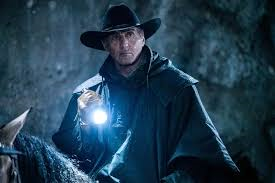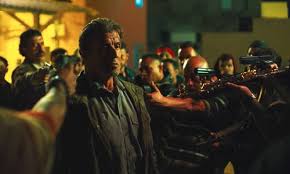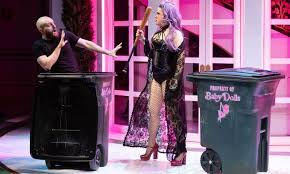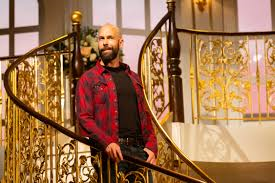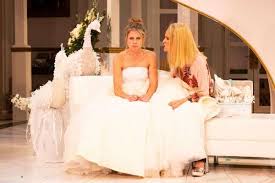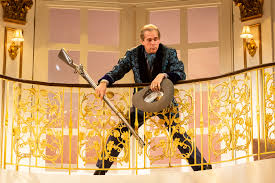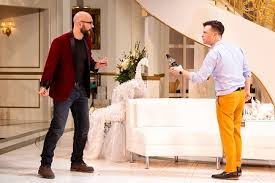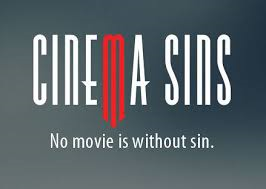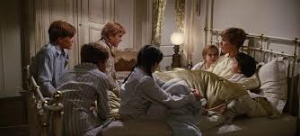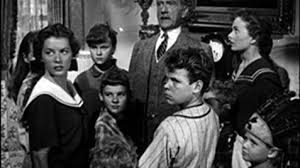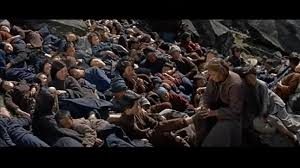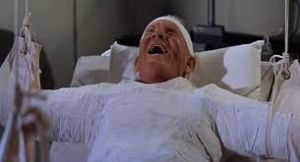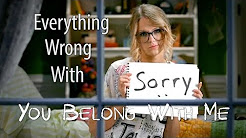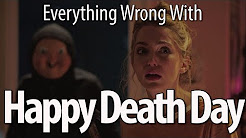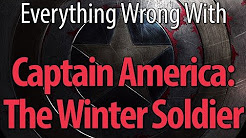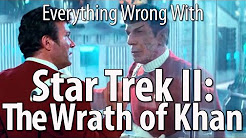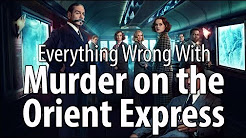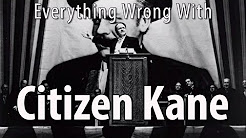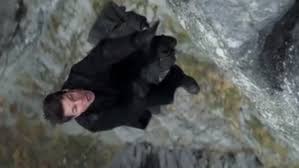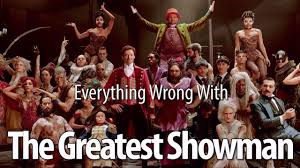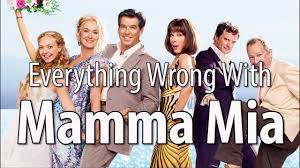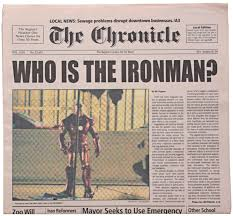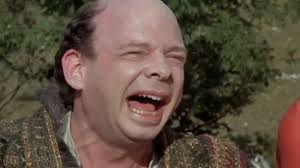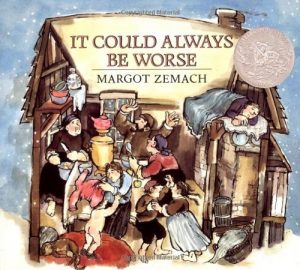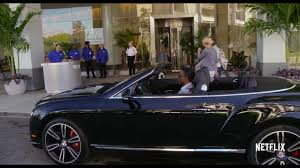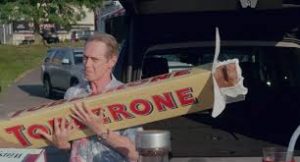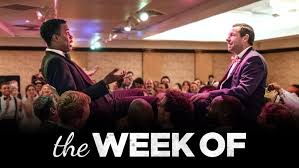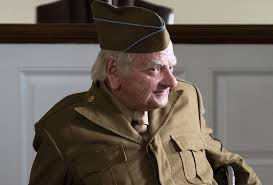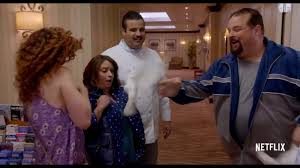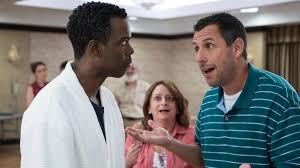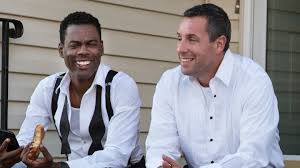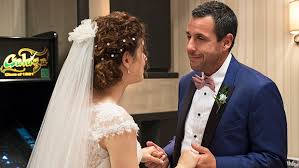AUDIO OPTION FOR REVIEW OF: RAMBO – LAST BLOOD
SHORT TAKE:
Excessively violent without justifiable purpose, even for a Rambo movie, what feels like a first draft of what could have been a much better film had it been through a few dozen re-writes.
WHO SHOULD GO:
Adults only! For extreme violence (not sure if Screenit has a scale measurement long enough), language, and graphic scenes of human sex trafficking victims.
LONG TAKE:
“They should not have left him with nothing to lose.” This is an expression my husband and I use to describe plots where the bad guys have put the protagonist in a corner, so our intrepid hero goes out to kill them “all”. Examples are: Live Free or Die Hard and ALL the John Wick movies.
Rambo movies, even at their mildest, are a guilty pleasure of revenge “porn” – titillation from violence, rationalized by the protagonist’s desire to mete out “justice”. Last Blood is extreme even for its type.
SPOILERS – BUT HONESTLY, THEY WILL NEITHER HURT NOR HELP THIS POORLY CONSTRUCTED OVERBLOWN MESS.
I cheered during the last fight scene in Once Upon a Time in Hollywood, watched Saving Private Ryan with pride, once sat through the entirety of A Clockwork Orange, and enjoyed all of the Alien franchise movies multiple times, but during parts of Rambo: Last Blood, particularly the last twenty or so minutes, I often cringed and had to look away. Granted the movie set up the bad guys for deserving everything that happened to them, albeit in a VERY heavy handed way, but it was still hard to watch and, unlike Saving Private Ryan, there was no moral, educational or historic purpose to showing it.
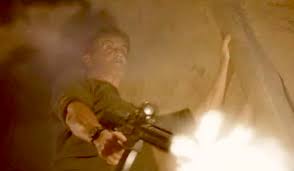 Rambo: Last Blood is not for the faint of heart or even for someone with a reasonably strong stomach. This had all the dread of a Taken, the gory tragedy of Titus Andronicus and the violence of Saving Private Ryan‘s first 10 minutes. That being said, the violence was really not this installment’s biggest problem. More painful to sit through was the paper thin, poorly thought out plot and caricature performances.
Rambo: Last Blood is not for the faint of heart or even for someone with a reasonably strong stomach. This had all the dread of a Taken, the gory tragedy of Titus Andronicus and the violence of Saving Private Ryan‘s first 10 minutes. That being said, the violence was really not this installment’s biggest problem. More painful to sit through was the paper thin, poorly thought out plot and caricature performances.
The premise is that Rambo, (self-made-Sylvester “Sly” Stallone – Rambo I – IV, Rocky I – VI, Creed I & II, Expendables I – IV, this boy DOES love his franchises, not to mention everything from the brilliant screwball comedy of valises 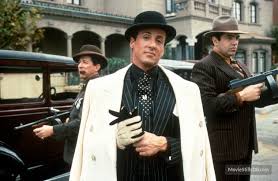 Oscar to Guardians of the Galaxy II – proving Stallone IS capable of SO much better) now lives out a quiet existence on a ranch with his friend
Oscar to Guardians of the Galaxy II – proving Stallone IS capable of SO much better) now lives out a quiet existence on a ranch with his friend 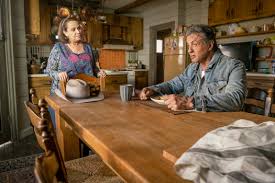 Maria (Adriana Barraza – small part in Thor as the owner of the diner in which Thor, memorably and emphatically, “asks” for another cup of coffee) and her teenaged granddaughter,
Maria (Adriana Barraza – small part in Thor as the owner of the diner in which Thor, memorably and emphatically, “asks” for another cup of coffee) and her teenaged granddaughter, 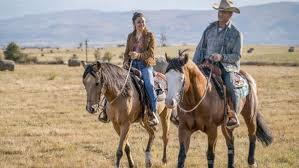 Gabriella (Yvette Monreal). Gabriella gets information from an old “friend”
Gabriella (Yvette Monreal). Gabriella gets information from an old “friend” 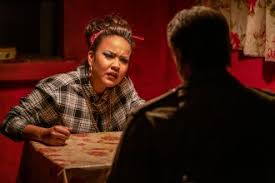 Jezel, (Fenessa Pineda) about her abusive father,
Jezel, (Fenessa Pineda) about her abusive father, 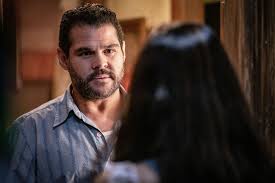 Miguel (Marco de la O), who abandoned her family years before. Gabriella sneaks off to Mexico to confront Miguel and, predictable to everyone in the universe but Gabriella, after meeting her abusive sperm donor, is drugged by Gizelle and sold as a sex slave to a Cartel run by the Martinez brothers
Miguel (Marco de la O), who abandoned her family years before. Gabriella sneaks off to Mexico to confront Miguel and, predictable to everyone in the universe but Gabriella, after meeting her abusive sperm donor, is drugged by Gizelle and sold as a sex slave to a Cartel run by the Martinez brothers 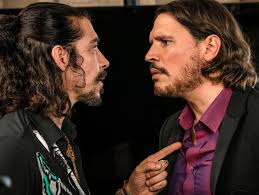 (Sergio Peris-Mencheta and Oscar Jaenada). Then Rambo sets off to rescue her.
(Sergio Peris-Mencheta and Oscar Jaenada). Then Rambo sets off to rescue her.
The acting was hammy-handed and mono-chromatic, but it is hard to blame the cast for sloppiness when the writers made little effort to construct a coherent adventure or characters, with a script that makes video game NPC (non-player characters) seem relatable by comparison. 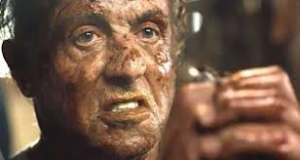 Only a couple of steps further, and had the topic (human trafficking) not been so grim, it might have been the grist for parody.
Only a couple of steps further, and had the topic (human trafficking) not been so grim, it might have been the grist for parody.
The bad guys are cookie cutter bad guys with zero redeeming features, or even self-justifying rationalizations for their behavior, which shallowness makes them uninteresting. They were simply place holders where the script said “bad guys”. I should not have been surprised had they started twirling black mustaches.
Even the soundtrack by Brian Tyler is generic – Southwestern echo-y trumpets, deep cello borrowed from every spaghetti Western cowboy duel not scored by Ennio Morricone.
 There is a myth that Sylvester Stallone wrote the classic, brilliantly simple and beautifully inspirational script for Rocky in three days. In fact what he wrote was a 90 page detailed treatment of which, by his own admission, only about a third was used in the final script. While even this is an amazing accomplishment, the fact that even Rocky, successfully conceived with preternaturally rare speed was MOSTLY written over the following months during pre-production and with the oversight of the financing production company, gives you an idea of how much work goes into a good shooting script.
There is a myth that Sylvester Stallone wrote the classic, brilliantly simple and beautifully inspirational script for Rocky in three days. In fact what he wrote was a 90 page detailed treatment of which, by his own admission, only about a third was used in the final script. While even this is an amazing accomplishment, the fact that even Rocky, successfully conceived with preternaturally rare speed was MOSTLY written over the following months during pre-production and with the oversight of the financing production company, gives you an idea of how much work goes into a good shooting script.  Unfortunately, Rambo: Last Blood is what a movie would look like if you actually DID film something you dashed off in a long weekend. Penned by Matthew Cirulnick and Stallone, the dialogue is a string of cliches and the story often makes no sense, as though they are only passing time, meandering about until they have enough justification to get to the over-the-top mayhem.
Unfortunately, Rambo: Last Blood is what a movie would look like if you actually DID film something you dashed off in a long weekend. Penned by Matthew Cirulnick and Stallone, the dialogue is a string of cliches and the story often makes no sense, as though they are only passing time, meandering about until they have enough justification to get to the over-the-top mayhem.
And the story is just – for lack of a more tactful word – stupid. Here are some of the dumber points:
1. When the niece confronts her father, Miguel first seems welcoming and invites her to ask any question she has of him. Then, like a bad tempered female cat he turns vicious and sneeringly tells her that she and her mother meant nothing to him. But — if that were true why would he bother to speak with her at all? Why not just slam the door in her face or deny his identity? And if he truly did not care, why would he say so with such venom to an innocent young woman he hadn’t seen in 15 years? His response was so over-the-top that I thought it MUST be a ruse to get her to leave for her own safety. You would think Miguel might have at least escorted Gabrielle to the border, if for no other reason than to protect his own – ass-ets – knowing Rambo was helping raise her.
2. The writers made a big visual point about John taking medication, but they never explain what the prescriptions are for. Was he dying? Was it to help him suppress his more aggressive tendencies? He “symbolically” throws them away just before he goes off to kill the bad guys, but no one bothers to explain for what it was supposed to symbolize? Releasing his “inner demons”? Resigning himself to death?
3. When John shows up at Miguel’s house and Miguel does NOT confess that he had only been trying to get her to go home, I was actually surprised. I fully expected Miguel to join up with John in a reconciliation quest and then go off together to rescue the girl. But that didn’t happen. Instead, John confronts the deadbeat contemptuous Miguel, the guy at the center of the mess, and then just leaves.
4. John pointlessly allows himself to be seen, captured, and hopelessly outmatched during his first attempt to rescue his niece.  The resulting delay, along with the attention he brings to Gabrielle in particular, effectively condemns his niece to a horrible death. Even a half-assed plan might have saved her. This is NOT in keeping with previous Rambo missions or movies.
The resulting delay, along with the attention he brings to Gabrielle in particular, effectively condemns his niece to a horrible death. Even a half-assed plan might have saved her. This is NOT in keeping with previous Rambo missions or movies.
5. It did not make sense that John would leave untouched the two people who were most responsible for putting Gabrielle in harm’s way: Gizelle who lured her to Mexico and Miguel who abandoned the family and then left his daughter to the mercies of a known dangerous city. Rambo could have, with a flip of a knife, dispatched Miguel then even have just “dropped a dime” on Gizelle to the Martinez brothers who would have happily taken care of her for him. I’m not endorsing this behavior. I’m just saying it’s out of character for a man this steeped in violence to allow the two people, without whom this whole scenario would not have happened, to get off Scot free. It’s just bad writing.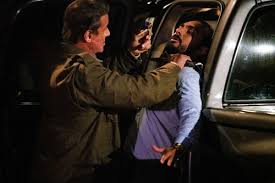
6. The Cartel Army —-? Wind up GI Joe dolls would have demonstrated more survival skills. The Cartel’s arrival – preposterous in itself as they stream through the border with a long line of “bad guy” black vehicles loaded for bear, proceed to make a LOT of noise during which time NO ONE shows up even out of curiosity – is greeted with a demonstration of massive ordnance mines. You would think cartel king Mr. Martinez might now have cause to rethink his frontal assault plan. 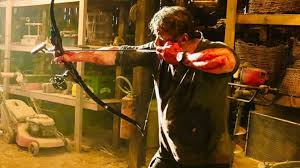 But no – Martinez continues his World War II Russian front-style battle “plan”. His troops just throw themselves at John’s house accumulating the casualties you might expect. Then, even dumber,
But no – Martinez continues his World War II Russian front-style battle “plan”. His troops just throw themselves at John’s house accumulating the casualties you might expect. Then, even dumber, 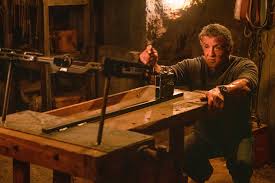 they descend into John’s home-made tunnels and search for him on his own turf, encountering booby trap after booby trap in an Aliens-level massacre and never ONCE attempt retreat, surrender, mutiny or escape but simply continue to run pell mell forward, as though John was tallying up frag points in Deathmatch and filming with all the same subtlety.
they descend into John’s home-made tunnels and search for him on his own turf, encountering booby trap after booby trap in an Aliens-level massacre and never ONCE attempt retreat, surrender, mutiny or escape but simply continue to run pell mell forward, as though John was tallying up frag points in Deathmatch and filming with all the same subtlety.
It’s as though Stallone and Cirulnick threw in a bunch of ideas but decided not to take the time to resolve them, in order to more (using a word homage to the INFINTELY better Stallone character, Angleo Provolone, from Oscar) “expeditiously” revel in all the bloody mayhem. 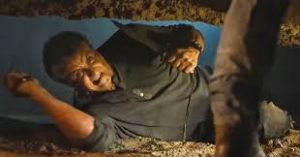 Hey! We did our bit to create some human “drama” now LET’S GET TO SHOOTING PEOPLE AND BLOWING STUFF UP!!!
Hey! We did our bit to create some human “drama” now LET’S GET TO SHOOTING PEOPLE AND BLOWING STUFF UP!!!
“Sly” Stallone has managed to accomplish a singular feat – I think he’s the first person to ever outlive his usefulness in TWO franchises of his own creation – Rocky and Rambo. He has become too old for either hand-to-hand combat or ring boxing.
He HAS creatively found ways to fit those weaknesses into the plot of both the Rocky and Rambo films. 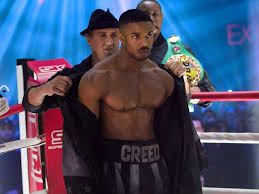 In the case of Rocky, Stallone has done a good job of passing the torch by “anointing” Adonis Johnson (Michael B. Jordan – Black Panther‘s nemesis Killmonger) as Rocky’s protégé and replacement. I could go into how Adonis artfully fit into the franchise as Apollo Creed’s son and how Rocky’s mentoring does poetic justice to Burgess Meredith’s memory as Rocky’s coach, but that can be a post for another day. (Meanwhile go see Creed I and II).
In the case of Rocky, Stallone has done a good job of passing the torch by “anointing” Adonis Johnson (Michael B. Jordan – Black Panther‘s nemesis Killmonger) as Rocky’s protégé and replacement. I could go into how Adonis artfully fit into the franchise as Apollo Creed’s son and how Rocky’s mentoring does poetic justice to Burgess Meredith’s memory as Rocky’s coach, but that can be a post for another day. (Meanwhile go see Creed I and II).
In the case of Rambo, Stallone does not seem to know how to let go or end the franchise.
My husband remembers reading the book First Blood, upon which the first Rambo movie was based. While Rambo: First Blood, the movie, diverges considerably from the source material, it still made for a fascinating and inspiring cult story of how a lone soldier suffering from PTSD responds when unwisely pushed into a corner. First Blood was a cult classic with legs. But oh how the mighty have fallen.
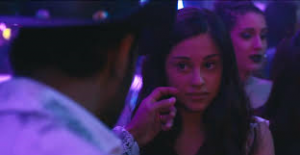 Putting all of my negative observations aside, I can’t help but applaud ONE aspect of the movie. Last Blood highlights the extreme dangers of diving head first into situations for which you are unprepared. More particularly, the film points out to misinformed, feminist-propaganda fed young Millenial snowflakes, who have been foolishly taught by the PC crowd they can go anywhere and do anything as long as they are following their heart, that the world is a very tough and sometimes horrible place which can quite literally eat you alive.
Putting all of my negative observations aside, I can’t help but applaud ONE aspect of the movie. Last Blood highlights the extreme dangers of diving head first into situations for which you are unprepared. More particularly, the film points out to misinformed, feminist-propaganda fed young Millenial snowflakes, who have been foolishly taught by the PC crowd they can go anywhere and do anything as long as they are following their heart, that the world is a very tough and sometimes horrible place which can quite literally eat you alive. 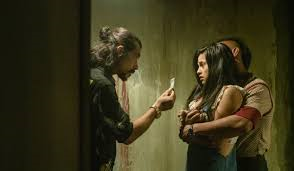 Gabrielle discovers, quickly and brutally, that all the empowerment brainwashing in the world will NOT save you from a horrible death. BUT the protective men in your life who care for you: your father, your husband, your brother, your uncle, your guardian – CAN protect you AND YOU SHOULD LET THEM!!!!!
Gabrielle discovers, quickly and brutally, that all the empowerment brainwashing in the world will NOT save you from a horrible death. BUT the protective men in your life who care for you: your father, your husband, your brother, your uncle, your guardian – CAN protect you AND YOU SHOULD LET THEM!!!!!
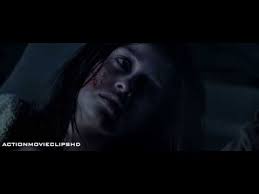 In short, when someone who you have good reason to trust, tells you something is dangerous, MAYBE YOU SHOULDN’T DO IT!!!
In short, when someone who you have good reason to trust, tells you something is dangerous, MAYBE YOU SHOULDN’T DO IT!!!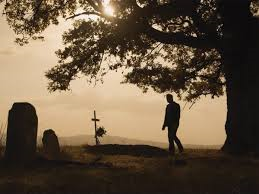
Rambo: Last Blood is a savage, unpleasant and ultimately unsatisfying experience, but if seeing it makes even one young adult hesitate to expose themselves to situations or people who, having seen the movie, might NOW look risky, then the movie would be well worthwhile to show them.
So, in short Rambo: Last Blood, while not great cinema…not even good cinema, serves as an exemplary horrible warning, .
LAST Blood? LAST, as in this is the end of the franchise? Please, oh please, oh please, let Last Blood be the final Rambo entry, despite the ambiguous Shane-like ending. Or, the way they are heading, Rambo will next be creating grenades in a nursing home and tossing them from a Zimmer Frame based on a script scribbled on a napkin during a quick lunch at McD’s.

